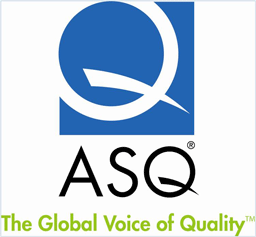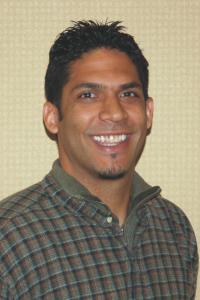
Questions For ASQ's World Conference on Quality and Improvement
QuestionsForLiving interview with Michael J. Dzick February 13th, 2012 regarding American Society for Quality (ASQ)'s World Conference on Quality and Improvement
QuestionsForLiving: Are there specific questions that the American Society for Quality (ASQ)'s leaders have asked themselves over the years that have contributed to the success, development, and growth of ASQ? If so, what are some of these questions?
Michael J. Dzick: As an organization, we have questions that we routinely ask as part of a situational analysis we conduct every year. In this process, a S.W.O.T. analysis is conducted and is leveraged as one of the main tools that we use to determine where we are and where we need to go. This tool forces us to ask ourselves four key questions, including:
- What are our Strengths?
- What advantages do we have?
- What do we do better than anyone else?
- What do our members and customers see as our strengths?
- What are our Weaknesses?
- What could we be doing better?
- What should we avoid?
- What are our members, customers, and potential customers likely to see as weakness?
- Where are our Opportunities?
- What opportunities have we identified?
- What trends are we seeing?
- What are our Threats?
- What obstacles do we face?
- What are our competitors doing?
- What changes/new developments exist that we’re not addressing?
Using this tool and this approach provides us with direction on where to go next. It’s a tool that is used by the organization extensively and one that I leverage for our work on our annual conference.
QFL: What are some specific questions that ASQ's leaders currently ask themselves, in the creation, design, and operation of the World Conference on Quality and Improvement that contributes to the overall quality and success of the event?
Dzick: About 6 years ago, we took a step back and tried to take a fresh look at our annual event. At the time, ASQ had been hosting the event for more than 60 years and my position as the lead of the conference had just been created. Many members of the conference team were new, and some where brand new. With this as the setting, the first thing we did was to try to capture and document our current practices so that we could answer the question, “What exactly are we currently doing?”
It seems simple, but as we went through the exercise of documenting what we do, it became evident that we were making a lot of assumptions and that there was a lot we didn’t know. So, from that, we started to focus a lot on eliminating our assumptions. To do that, we focused on two main questions: “What do we think?” and “What do we know?” It took more than a year to complete the documenting and analysis, but the understanding we gained was critical to the success we achieved. Within 5 years we were able to double our overall satisfaction, and we also made significant gains each year in the surplus that we were able to achieve from this event. The work we did to understand what we were doing, why we were doing it, what we actually knew, and what we only thought we knew, has given us much more clarity and direction. We now have a better understanding of who comes to our event, why they come, what they like, what they don’t like, and what they’re looking for.
Since this work, we’ve stepped back even further to ask ourselves the question of “What are we trying to achieve with this event?” When creating a new event, this should be the first question asked. In hindsight, this should have been the first question we asked as well. However, when working on a long-standing event, it’s very easy to lose sight of that question. When I started, ASQ had been hosting the World Conference for 60 years and for many of those years success was measured in attendance. But, having a true and collective understanding of what we’re trying to accomplish is the area of focus that’s going to bring our event to the next level. We’ve since gone beyond the question of how many people are we hoping will come, and become much more strategic with the questions we ask. What kind of experience do we want to provide? What do we want participants to walk away with? What’s our top priority? These are all questions that go deeper than we’ve gone in the past. They’re harder to answer (in a genuine way), harder to get everyone committed to, and, many times, harder to measure. In the long run, they are the answers that turn an event into an experience and a good conference into a premier one.
QFL: What are three to five primary questions that an individual, could ask him/herself to improve the quality of their product or service?
Dzick: I go back to the questions I identified before: What are we trying to accomplish? What do we think vs. what do we know? All those are important questions to ask. I think one of the most important things can be found in an area of focus (vs. a specific question); that being, customer experience. There is a lot of data and research that demonstrates that having a good product or service isn’t enough. I’ve heard estimates stating that as much as 50 percent of your “satisfied” customers will still leave you. Satisfaction with a product or service does not equate to loyalty — excellent customer experience does.
Simon Sinek is a keynote speaker for our upcoming conference in May. He’s an author who wrote a book titled “Start with Why.” In the recording I found of him, he makes the point that “people don’t buy what you do, they buy why you do it.” He backs up this statement very eloquently and uses great examples to demonstrate it. I couldn’t agree more with his premise, and there’s a strong link between his statement and the statistic I shared differentiating satisfaction from loyalty. You’re not going to be able to create a positive customer experience unless you connect with the customer. That connection can be extremely powerful. It can be so powerful that it can actually be a bigger influence than the actual quality of your product. Don’t get me wrong, the quality of your product or service is critical, but there are a lot of organizations out there that have a great product or service, and still struggle to succeed. Customer experience is often a large part of the reason why.
QFL: What questions do you believe that people could ask themselves to make our world a happier and healthier place?
Dzick: I read an article once on some interviews that were conducted with highly successful people. The interviews included people like Bill Gates, Donald Trump and other industry leaders. The intent was to find what, if any, attributes these folks all had in common to uncover the “keys to success.” One of the findings particularly resonated with me. They found that each of the people interviewed would routinely “rate” the effectiveness of their day. Each, through their own method, practiced some form of daily evaluation. Some would rate their day on a numeric scale (ex. 1-3), some would grade each day (A, B, or C) and some would look at different areas of their life and rate each daily (personal, professional, etc.).
I acknowledge that sharing that finding doesn’t answer the question directly. It does, however, outline an approach that can be is helpful as people work to make the world a happier and healthier place. If you had to pare this approach down to a single question, the question would be “How did I do today?” There’s a lot of value in taking time to do an internal self evaluation regularly. It doesn’t have to be formal (although it certainly could be), but it’s most valuable when done regularly. It’s a very effective approach to promote individual health and balance.
For more information, Michael J. Dzick can be contacted at:
Michael J. Dzick
Bio
Michael J. Dzick, CQIA, CMQ/OE, has been an instructional and conference designer at the American Society for Quality since 2006. He has a bachelor’s degree in education from the University of Wisconsin-La Crosse, and has more than 15 years of experience in the education, training, and adult education fields. In addition to post-graduate study in Penn State University’s adult education program, Michael has also earned certifications as a Quality Improvement Associate and Certified Manager of Quality/Organizational Excellence.
In his work at ASQ, Michael has developed programs for a wide range of conferences with each varying in size, format, and audience. In 2007, Michael was promoted to conference manager and made the lead of ASQ’s premiere conference: the World Conference on Quality and Improvement. In his current role he oversees all aspects of conference design and execution. His work and experience involve him in program development, market research, strategic planning, business development, budget management, and conference marketing and promotion. In his current position, he also is responsible for the oversight of facilities contracting, sight selection, and supplier contracting and management.
Homepage
http://www.asq.org


